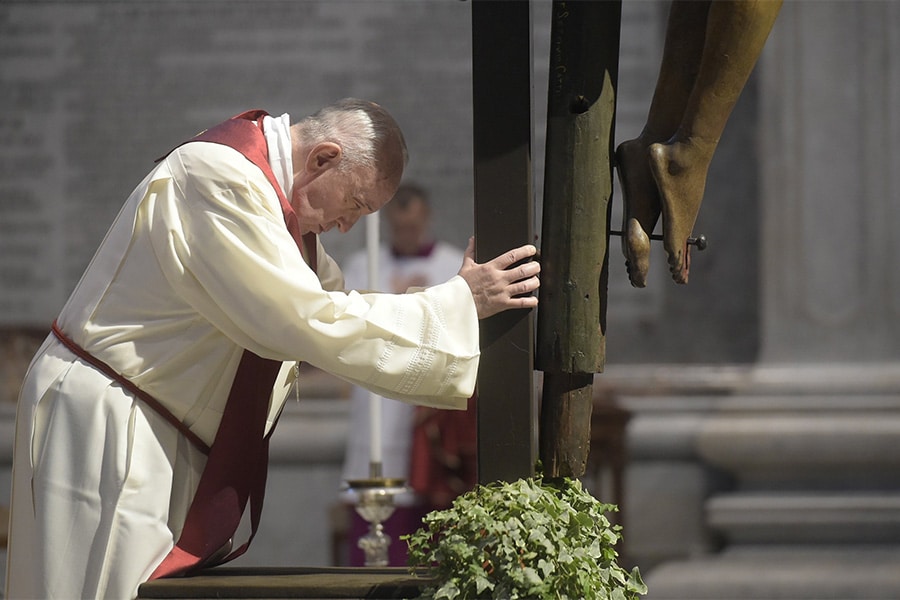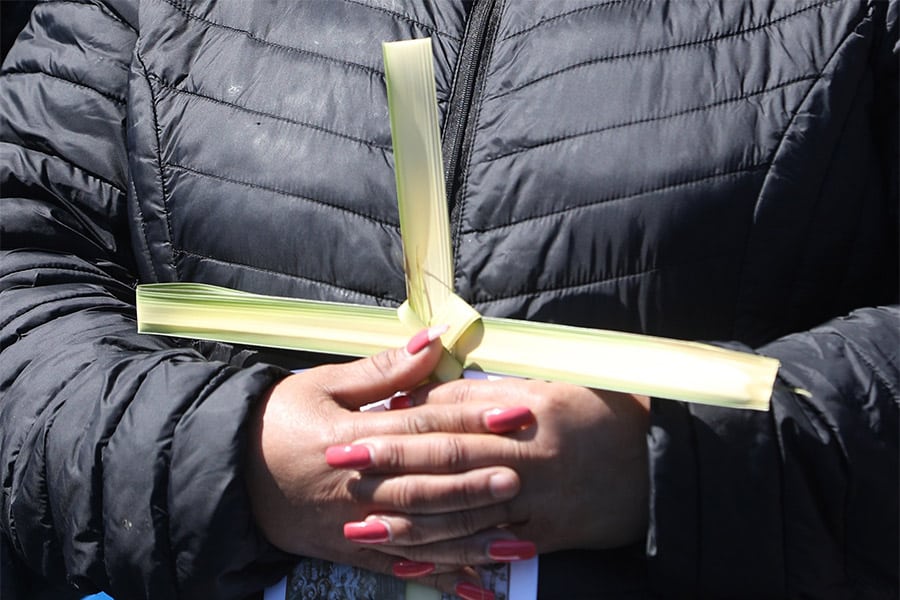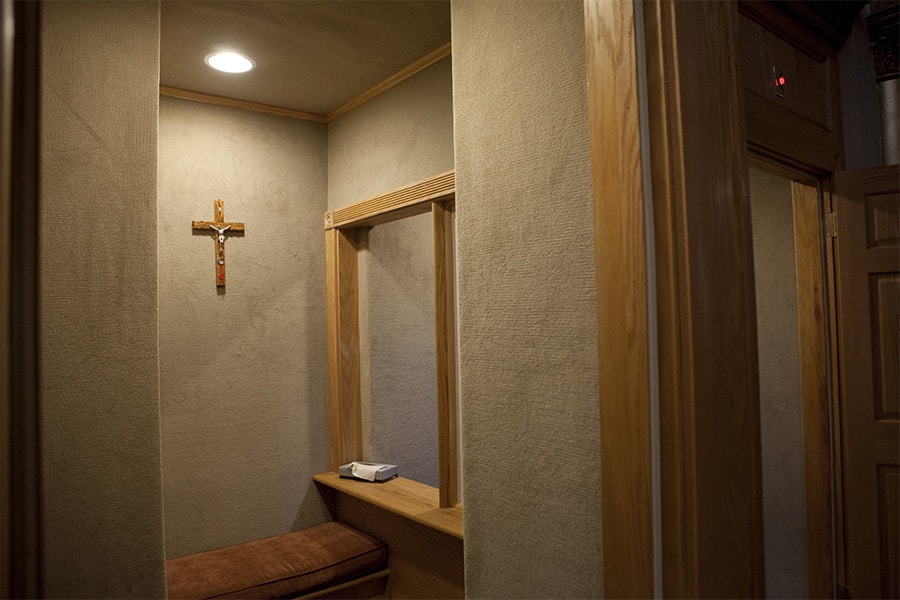It was one of those serendipities that occur as one is casually scrolling down postings on social media: I no sooner read a headline about the U.S. Conference of Catholic Bishops making deep cuts into their Department of Justice, Peace and Human Development — including “a loss of jobs for several staff members” — when below it I spied a post featuring a sign from a Methodist church reading, “8 men have as much wealth as 3.6 billion people, but sure, the single mom on food stamps is the problem.”
As some of our media and tech barons possess more wealth than small nations, that’s one of those sentiments it’s easy to like, but just as easy to dismiss as being true yet lacking nuance. I’d likely have forgotten it, myself, had I not instantly scrolled into another timeline class battle. Televangelist Joel Osteen had posted a cliché’d ode to immaterial contentment: “You may not have a lot of resources,” he tweeted, “but … If you can look up at the stars at night, you’re blessed.”
It’s a truism many would agree with, but given the personal wealth Osteen has accumulated through his Word of Faith ministry, his words hit some like a vat of bland, platitudinous oatmeal cast forth to a crowd craving honey and milk, and perhaps some meat. The value of the sentiment became lost in caustic remarks on Osteen’s private jet and mansion, and general complaints about churches possessing too many worldly things, which should be sold to help the poor.
I’m no class warrior. Yes, Jesus told the wealthy young man to sell off his possessions and give the money to the poor; but the helpful, necessary presence of Joseph of Arimathea in all four Gospels demonstrates that the rich and influential have their parts to play in the whole pageant of salvation, if they are but willing.
Because salvation has never been about one’s worthiness, but about one’s willingness.
Class resentments curdle the soul; they risk tempting doubt against the unknown purposes of God, for who knows to what end God permits obscene wealth? We can only hope that those so gifted will also mine probable gifts of humility and generosity to serve humanity and God’s will in the world.
Having said that, I can’t help but wonder why our church leaders are not better financial stewards.
Omitting global properties and the invaluable works of art for which it acts as a kind of caretaker for the sake of humanity (and, thankfully so, or the Pieta might become part of a private art collection), in 2023 the wealth of the Vatican was estimated to be $5 billion. That heady number quickly gets people wondering why, when the Vatican seems so rich, bishops must cut social programs. The question is inevitable: With $5 billion, can’t we do more, and do it better?
Given the size of the worldwide church and her ever-present concerns — the poorest dioceses in underdeveloped countries of course need assistance, but so do wealthier Western places where salaries and benefits must be funded — the need is immense.
Recently we read that Peter’s Pence, the annual worldwide collection “destined to Church needs, to humanitarian initiatives and social promotion projects,” had seen a slight uptick in donations, (53 million euros) only to see nearly 90 percent covering Vatican operational costs. Scratched before it neared the gate.
This seems like poor economic management. In March 2023, in response to the Curia’s “economic crisis,” Pope Francis ended the practice of giving cardinals, senior curial members and some private individuals free or subsidized use of Vatican-owned apartments. Most would now pay “market rates” on their flats.
A good move, but if the curia’s expenses are hoovering up 90 percent of Peter’s Pence (all donated by the people in the pews) then why does Cardinal Angelo Becciu, convicted of embezzlement against the Secretariat of State’s investment fund, still pay “only a nominal monthly rent”? His may be only one apartment going cheap — at least that we know of — but over 12 months, at “market rates” that luxurious flat, which includes space for domestic staff and a renovated, “restaurant worthy” kitchen could bring hundreds of thousands of euros into the Vatican’s coffers.
This week we read that the question of female ordination, thought settled by the pope, and pretty recently, would continue to be studied.
It is good to study. But can our leadership also do a deep dive on financial management in service to the People of God? Perhaps they could start here:
“Know well the condition of your flocks, and give attention to your herds; For riches do not last forever…” (Pr 27:23:24).
Read More Commentary
Copyright © 2024 OSV News









